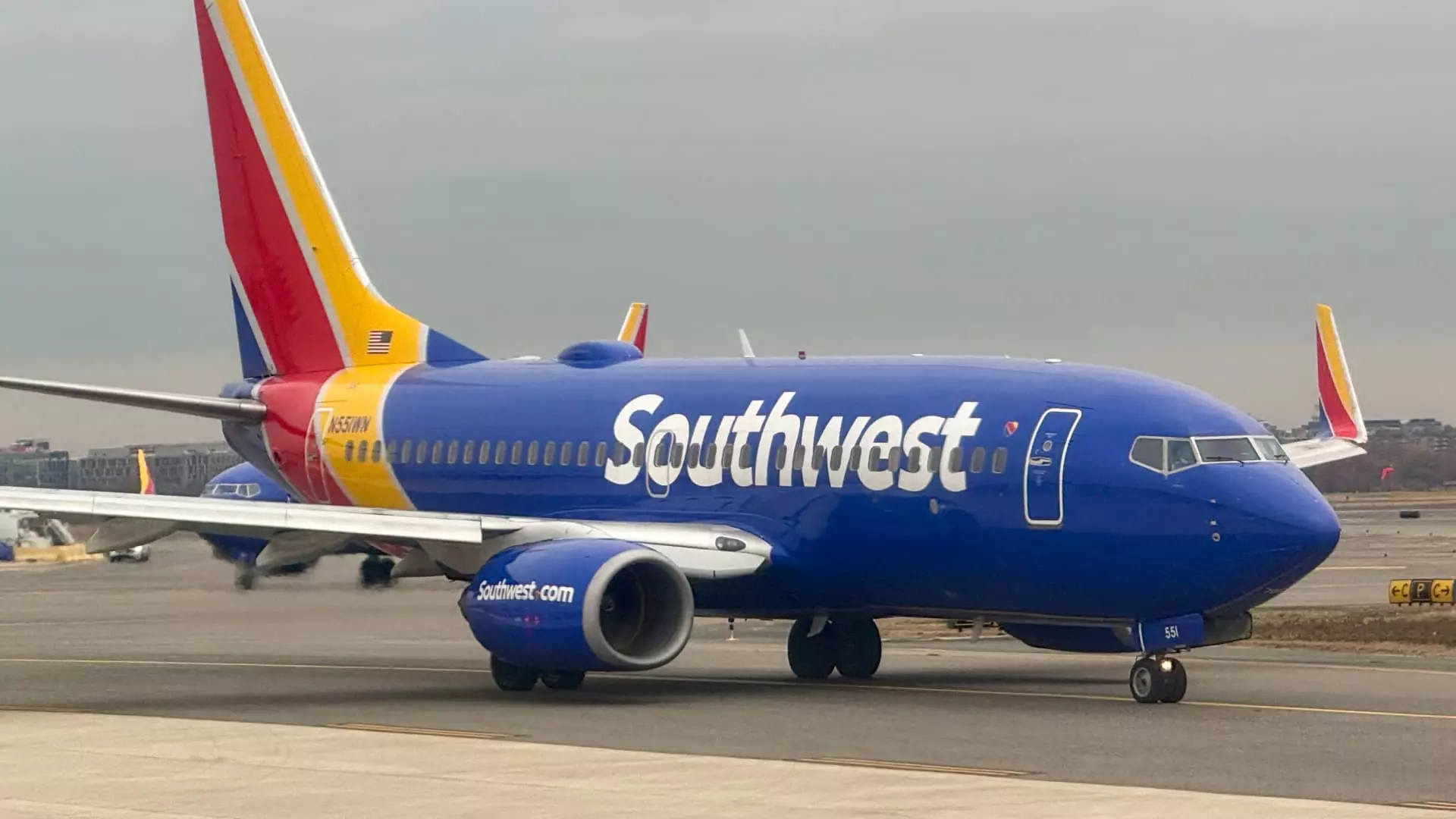In a bold move to bolster its financial health, Southwest Airlines has announced a significant pause on corporate hiring and promotions, alongside the suspension of most summer internships. This decision, articulated by CEO Bob Jordan in a memo to employees, is part of a broader strategy to enhance profit margins while navigating the challenging waters of the airline industry. Jordan’s candid acknowledgment that “every single dollar matters” underscores the airline’s urgency to recover from past financial difficulties.
The halting of corporate hiring signifies a pivot in Southwest’s operational focus, as the airline seeks to tighten its financial belt. In an age where competition is fierce among major carriers, each expenditure must be judiciously evaluated. The suspension of employee team-building events, a tradition rooted in the 1980s, further emphasizes the airline’s resolve to prioritize financial prudence over past practices that were once viewed as crucial to corporate culture.
These changes come on the heels of a turbulent period for Southwest Airlines, which faced pressure from activist investors such as Elliott Investment Management. Last year, this group advocated for a leadership shake-up, calling for new strategies to enhance profitability. Although a compromise was reached that left Jordan at the helm, the advent of new board members illustrates the necessity for reform within the airline’s operational framework.
As part of its efforts to streamline operations, Southwest has laid out a comprehensive plan that includes a move away from its iconic open seating model. The introduction of assigned seating and a section offering extra legroom are meant not only to enhance customer experience but also to capture a share of the lucrative market segment preferring premium options. Additionally, plans for overnight flights and the elimination of unprofitable routes demonstrate a strategic shift aimed at refining operational efficiency.
In his communication, Jordan emphasized the importance of maintaining momentum through 2025 and warned against complacency as they navigate their recovery. His insight reflects a growing acknowledgment within the airline sector that swift actions taken in previous fiscal years must be sustained to ensure long-term profitability. The upcoming financial reporting scheduled for January 30 will be closely watched, as stakeholders are eager to gauge the effectiveness of these cost-cutting measures and strategic pivots.
Despite facing numerous challenges, there are signs of resilience. Southwest Airlines has seen its shares increase by 14% over the last year, even as competitors like United Airlines have outpaced them significantly. The market’s response indicates a cautious optimism towards Southwest, suggesting that investors remain hopeful about the airline’s ability to regain its footing.
As Southwest Airlines maneuvers through these transformative changes, it stands at a critical juncture. The emphasis on cost management must be balanced with efforts to retain the unique culture that has differentiated it from competitors. The future will depend on how effectively the airline can integrate financial recalibrations with an enduring commitment to customer service and employee engagement. As the airline industry continues to evolve, Southwest’s ability to innovate and adapt will determine its trajectory in the years to come.


Leave a Reply